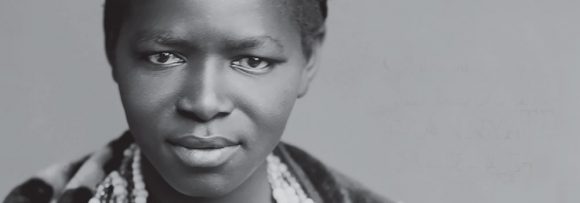By Phumeza Mgxashe , Leila Dougan
In the lead up to the 60th celebration of the 20,000 women who marched strong against the pass laws, and as we see the resurgence of women-led activism on campuses across the country, Zubeida Jaffer’s new book on the historical activist, Charlotte Mannya Maxeke, could not have come at a better time.
On a cold winter’s night in Cape Town a gathering of intellectuals, anti-apartheid activists, trade unionists and workers came together for the launch of Jaffer’s third book, Beauty of the Heart, The life and times of Charlotte Mannya Maxeke.
Beauty of the Heart offers historical insight to the first South African black female graduate who has long been written out of the history books. Even though oppressive colonial laws meant that she was not allowed to study in her own country, Maxeke beat all odds and studied at Wilberforce University in Ohio, graduating with a BSc degree in 1901. She returned to South Africa to teach, dedicating herself to the upliftment and self-determination of black South Africans and was heavily involved in one of the first recorded women’s movements.
The three-person panel at the SACTWU-hosted launch was chaired by Prof Jonathan Jansen and included Jaffer, Professor Antjie Krog and Dr Thozama April, who deliberated on Maxeke – a woman who played such diverse roles of being an educator, community activist, devout Christian, wife, mother and probation officer. Albie Sachs called the lauch a ‘triumph’ with workers coming together with intellectuals to celebrate Maxeke.
“Charlotte’s story helps us understand that there was someone way back in the 1890s who was busy acquiring education and also opposing the new [pass] laws that were coming in,” said Jaffer.
Jaffer details Maxeke’s early life, her birth in 1871, her days in the church and her move abroad to become the first black female graduate of South Africa. The journey takes the reader from the hillsides of the Eastern Cape and the gold rush of Kimberley, to the great halls of Britain where Charlotte and her younger sister, Katie Maxeke, travelled as part of a church choir. This could not have been an easy trip for two young black women during the era of colonial expansion and scientific racism that presented black people as the link between humans and animals.
The book details one of many distressing moments when the British authorities said that the name of their choir, the Jubilee choir, would be changed to the ‘Kaffir Choir’, without their consent.
“When they got to London, they were suddenly told that they would be called the ‘Kaffir Choir’ and they rejected it, but the British authorities ignored them, but what the research showed was that they rejected it vociferously.”
Jaffer said this shows much about the psychological violence against black people during the time of colonialism.“We were being conquored, but with time we were not only conquored, we were dehuminised,” said Jaffer.
Within this context, it was up to women like Maxeke to fight back. And they did. Jaffer marks the resistance of the time, with Maxeke’s founding of the Bantu Women’s League (BWL) when she returned to South Africa after her studies. The BWL started in 1918 and brought the issue of black women carrying passes to the fore. A march was led by BWL in 1919, which saw women burn their passes in front of the municiple offices.
“The story is really apt because it’s the 60th anniversary of the Women’s March and we remember that there’s this movement of many other women led by Charlotte [in 1913], that laid the foundations for the protest that came after,” said Jaffer.
Jaffer’s painstaking research began in 2012 and was undertaken by drawing on existing research and archives, including a Phd thesis by April, written at the University of the Western Cape and titled Theorizing Women: The Intellectual Contributions of Charlotte Maxexe to the Struggle for Liberation in South Africa [sic].
During the course of her research, images of Maxeke in Britain were unearthed and seen for the first time in 125 years.
Her research has led Jaffer to describe Maxeke as follows;
“Maxeke rolled up her sleeves and got to work. She made up her own mind about where to focus her energies. She chased her dreams and came into her own – defying the architects of both colonisation and apartheid. Hers was a triumphant spirit that powered on in spite of the multitude of odds staked against her. It is the courage and strength of the women of the time, Maxeke and many others, which is the focal point, as well as the history of resistance by black women.”

